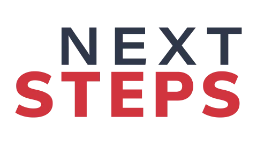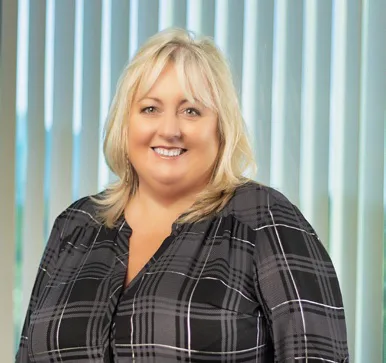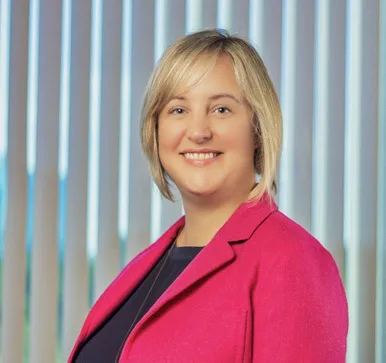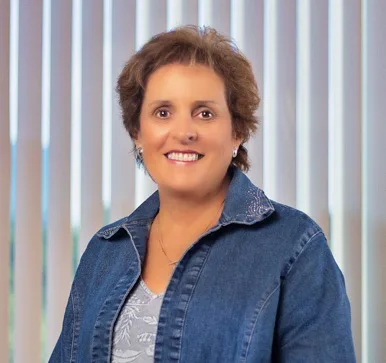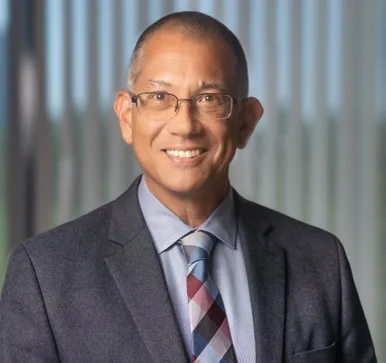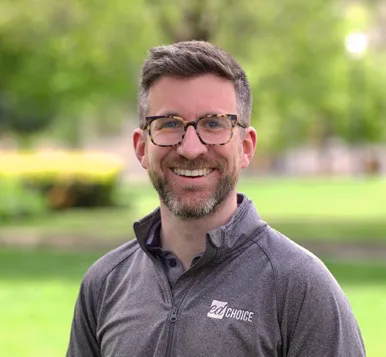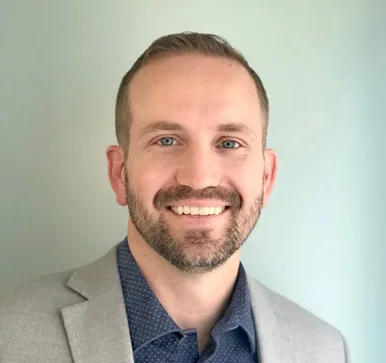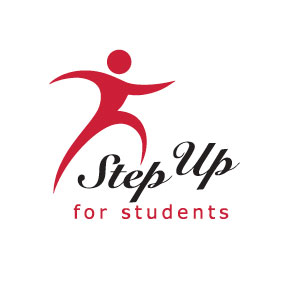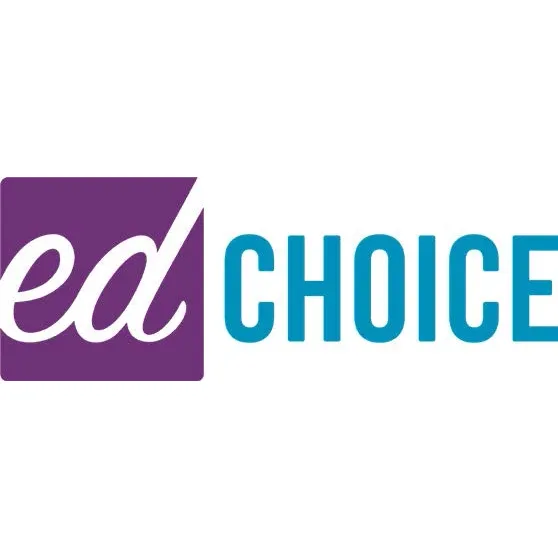Introduction
When advocates talk about school choice, children and families are usually in the foreground. This makes perfect sense. School choice exists to give students more and better options. Understanding the challenges that students face and the policies and programs that can help them overcome those challenges is central to the school choice movement.
But school choice isn’t just about students. Teachers benefit as well. School choice creates the opportunity for entrepreneurial educators to start and operate schools aligned to their strengths and their beliefs about how children should be educated. Oftentimes teachers are stuck in the very same schools that children are. Poor management, bad decisions around curriculum or teaching methods, misuse of technology – the list of things that frustrate children and families are the same things that frustrate teachers. School choice can free teachers from such circumstances.
That is what this paper is about.
Florida is full of gutsy teachers who left district-run public schools to create their own diverse, distinctive learning models in line with their visions and values – and are catering to growing numbers of Florida families who now have the power to choose these models, or not. Florida’s income-based school choice scholarships are now worth about $7,700 each, and, thanks to expanding eligibility, are now available to roughly 70 percent of public school students. Florida’s education savings account (ESA) for students with special needs, meanwhile, are worth about $10,000 each.
The possibilities are adding up. Nearly 192,000 students in Florida used private school choice scholarships in the 2021-22 school year, triple the number from a decade ago. Meanwhile, more than 26,000 used education savings accounts in 2021-22, a vehicle for education choice in Florida that didn’t exist until 2014. (Figure 1.) These programs are expected to continue to see strong growth. So, too, are opportunities for education entrepreneurs, including those now teaching in district schools.
Such opportunities are by no means limited to educators in Florida. The number of state-supported private school choice and education choice programs across the nation has nearly doubled in the past decade, from 36 in 2012 to 67 in 2021. Meanwhile, the number of students participating in these programs is steadily climbing, too. (Figure 2.)
This rise in choice coincides with a more sobering trend: The growing numbers of public school teachers who are unhappy with their jobs. Such frustration, building for years, was further fueled by the COVID-19 pandemic and by “culture war” issues that followed. A national survey of public school teachers commissioned by the Winston School of Education and Social Policy at Merrimack College and conducted in early 2022 by the Education Week Research Center found teacher satisfaction at an all-time low. Only 12 percent of respondents were “very satisfied” with their jobs, down from 62 percent in 2008 and the previous low of 33 percent in 1986. (Figure 3)
The reasons for this downturn are myriad and complex. But the expansion of education choice opens the door to potential solutions, by giving more educators more power to control their professional destinies and to build options that work for them as well as families.
In this regard, Florida’s teachers-turned-entrepreneurs are trailblazers. That is why we gathered 10 such educators together for a focus group to ask them about their experiences. We wanted to know what their motivations were, what hurdles they have faced, and what solutions they think might help overcome those hurdles. Their answers were surprising and insightful, and have lessons for policymakers both inside and outside of Florida.
One Florida educator and focus group participant – a former Teacher of the Year in her public school district – told us she had a crisis of conscience as she was on the verge of becoming a principal. She balked at the thought of leading an entire school into a test-heavy regimen she had come to view as problematic. At the same time, she was torn by the prospect of leaving a profession she had aspired to since she was a child and had worked so hard to become outstanding in.
She asked herself, “How can I stay in it but not stay in it?”
Methodology
We conducted in-person focus group discussions with 10 Florida private school founders who previously taught in public schools. The interviews were conducted and digitally recorded in a conference room at the Step Up For Students office on April 3 and April 4. The participants were granted anonymity so they could speak freely. Some later agreed to speak on the record for the short spotlights and videos embedded at the end of this report.
Of the 10:
- Six are white. Three are Black. One is Hispanic.
- Seven represent heavily urbanized parts of the state. Two represent rural counties. One represents a county commonly considered suburban.
- Their experience as education professionals ranges from seven to 32 years, counting the time since they created their own learning options.
- They spent between five and 19 years in K-12 education before founding their own options, with the average being 10 years.
- Three founded large private schools (serving 150 or more students). Three founded small private schools (serving between 50 and 100 students).
- One each founded a private micro-school (14 students), a homeschool co-op (about 45 students), a hybrid homeschool (about 30 students), and a learning pod (with 5 to 10 students).
- Four of the 10 created learning options that wholly or primarily serve students with special needs.
- For eight of them, school choice scholarships are used by a majority of their students.For six of them, the figure is 85 percent or more.
- Two of the pioneers are former public school district Teachers of the Year. One is former ESE Teacher of the Year for the state of Florida.
- Two participants are recipients of grants from the VELA Education Fund, a national nonprofit that supports everyday entrepreneurs creating new learning models such as micro-schools and homeschool co-ops.
- One participant won help from The Drexel Fund, a philanthropy that assists promising new private schools sprout and scale, and has been especially active in Florida.
Objectives
- To better understand why these school founders decided to make the leap from public school educator to education choice pioneer. That included whether they considered going the charter school route and, if they did, why they decided against it.
- To have them identify what barriers they faced in creating their own learning options, and which ones were the most – and least – significant.
- To hear their ideas for what kinds of potential changes, in policy or otherwise, could make it easier for the next wave of public-school-teachers-turned-entrepreneurs.
Question #1: What motivated these teachers to leave the public school classroom and start new schools?
The focus group participants offered multiple motivations for why they made the leap from public school educator to education entrepreneur. Three reasons stood out:
Frustrations with public schools. Participants expressed concerns about lower standards and expectations for disadvantaged students; a lack of success for too many students of color and students with special needs; and too much emphasis on standardized testing.
A desire to create options that better served their own children. Seven of 10 participants said their own children, or the children of family members, were not getting what they needed in traditional schools, public or private. Five were working for the same public school systems they said were not serving their own children well.
A desire to create options that better served teachers, too. Several participants said traditional schools were also falling short in adequately preparing teachers and maximizing their talents and passions. They intentionally sought to create alternatives that would better work for students and teachers.
The quotes that follow throughout this report have been edited slightly for clarity.
In their own words: Motivations
Because of common frustrations with public schools, including…
Low standards.
I was actually deliberately told not to teach grammar. Because when the kids would go home there would be a division between how they speak at home, and how to have correct grammar. I was also told that I needed to pass more children, even though they were not passing the schoolwork, or else I would lose my job.”
Teaching to the test.
I always said I wouldn’t teach to the test, but once I got to the tested grade, you will teach to the test or you won’t have a job. Even if you think you’re not for a little while, you really are teaching to the test.”
Overlooking disadvantaged students.
The initial desire for me was the lack of performance that I noticed, particularly among students of color. In my family, on my father’s side, for a long time I was the only male to graduate high school. And the only male that hasn’t been convicted of a felony. So, you see that relationship between a lack of education and a lot of those problems that are associated with being involved in the criminal justice system. Those types of experiences led me to want to make that change.”
As a special education teacher in the public school system, I saw my students – I was an elementary teacher at the time – I saw my students going into middle school and a lot of them were not receiving services. They were going into classrooms where there was no one helping them to organize or to understand the different things that were going on. That’s when we started to really seriously talk about how we would do our own school.”
There are kids who are absolutely gifted, but nobody sees them. You got all these kids that if given another way to show that they understand, they would be great. But because they’re not passing (the state’s standardized test) you’re putting them in this whole box like they can’t ever go anywhere or do anything. I decided they just need another option.”
In their own words: Motivations
Because they wanted to better serve their own children, or the children of family members.
I have a nephew, and when I moved back to Florida, he was in the first grade and could not read. Now he goes to my school. Now he’s a fifth grader and is in the top quartile. Those types of things are what pushed me to want to do something different.”
My son (who is autistic) was left soiled. My daughter was in the classroom and would tell the teacher, ‘Please, my brother needs a changing.’ It’s about an hour before class is dismissed, so guess what, not doing it. My son eloped (from school) three times. My husband found him in a carport by himself. He was abused several times. He was not fed.”
My daughter has special needs. She has autism and developmental delays. We started in the public school system, and it really did not work for her. We wanted more, and they really limited what she was able to access.” The focus group participant said she tried private schools using a choice scholarship, but those weren’t just right, either. “So, we ended up deciding to open up the school.”
My first taste of homeschooling was when I had some problems with my older son in eighth grade. I made the decision that his character is more important to me than academics, so I yanked him really fast out of school. His teachers were like, ‘No, no, no, what are you doing?’ I said it’s important for me to reel him in. And it was such a profound change in his whole personality that I knew when my youngest son got to seventh grade, I was going to pull him out, too.”
I was the emotionally handicapped teacher because I had a lot of experience at home, because my son had pretty severe behavioral disabilities. He was in some of the special education centers here in the county, and I was not real happy with the experience. That turned into us talking about opening our own school.”
For me, it’s always been about my now 11-year-old. By the time he was four, and we started (pre-school), I would drop him off, and every single day he cried. There was even one point he was like, ‘Mom, I feel like dying.’” The focus group participant said that’s when she started homeschooling him. “Then he actually started enjoying school. I was like well, every child really kind of deserves this. Let me do a co-op.”
In their own words: Motivations
Because they wanted to help other teachers.
You always had these people coming in, telling you how you’re supposed to work with these kids. I’m like, you need to talk to their teacher to figure this out. She’s got five kids in this room that didn’t sleep last night because they live in a house with four other families. But you want to come in, in five minutes, and say this teacher is ineffective. I hated that. So that’s what really motivated me. It wasn’t just for kids. It was for teachers, too. They needed something else, too. Where they could really be authentic and be creative and really reach the kids. Because they could. But not within the confines of the system.”
There was no one to turn to for the other (special education) teachers. They could only be the best they could be based on what they knew. There wasn’t that training. There wasn’t those resources they could reach out to. There was no one at the school. Even though we were at a good school with a good admin team, we were still like the ESE class down the hallway that no one really walked down, that no one ever came into. Just watching my students move on and not have access to amazing teachers all the way through was the piece that really pushed me. Like, I can’t do this anymore.”
Question #2: Why didn’t they start charter schools?
Public charter schools are, in many states, well-established alternatives to district schools. And unlike founders of private schools and other independent learning options, charter school founders can access public funds for start-up and facilities and tap into a support system that can include detailed guidance from state agencies and charter school associations. Most of the focus group participants considered the charter school route, but ultimately decided to go their own way.
Focus group participants offered four primary reasons for starting private, instead of charter, schools.
Starting a charter school takes too long. While it is true that starting a charter school entitles educators to several different funding streams, actually accessing them is quite challenging. There is a ton of paperwork and numerous bureaucratic and procedural hoops that educators have to jump through. And, it isn’t guaranteed to work; charter applications get rejected frequently. This was simply too much headache for the entrepreneurs we talked to.
Charter schools are too much like district schools. While much hay is made about the freedoms that charter schools have, most charter schools aren’t actually all that different from the public schools that they are supposed to replace. The entrepreneurs that we talked to didn’t want to make slightly better public schools, they wanted to do something much different.
Charter schools don’t offer enough freedom. The entrepreneurs that we talked to had a bias for action. They wanted to do stuff. They saw problems and wanted to fx them. They didn’t want to have to ask for permission or fll out a bunch of forms to do what they thought was necessary. To them, charter schooling required them to ask for too much permission. They just wanted the space to do their own thing.
Charter schools cannot be religious. Several of the educators we spoke to wanted to start explicitly religious schools. Charter schools cannot be religious.
In their own words: Motivations
Starting a charter school takes too long.
With the time constraints and everything that goes along with that bureaucracy you need to get through to get started, I thought private was definitely the better route. We opened in eight months. I wouldn’t have been able to do that with a charter. It would have been a couple of years.”
Charter schools are too much like district schools.
So many times the charter schools that I’ve seen start out as these amazing grassroots we’re- going-to-change-the-world. And within three years, they’re just a public school with a fancy hat.”
We did look at it and decided really that’s not what we wanted. A lot of the requirements that a charter school has are similar to a public school. We really wanted to do our thing.”
Charter schools still don’t offer enough freedom.
It was kind of go big or go home. I wanted it all. And I just wanted completely out, with no strings attached.”
I didn’t want to be controlled. Being an independent school, I can do what I know I need to do for my kids and I don’t have to ask you, ‘Can I do this?’”
Charter schools would stymy a religious component.
We wanted to have a Christian element.”
Question #3: What hurdles have they faced?
To gauge the significance of barriers commonly cited by education entrepreneurs in starting and maintaining new schools, we did something a bit different. Instead of simply talking to them, we asked the focus group participants to rate nine potential hurdles on a 1 to 5 scale, with 5 being the most significant and 1 being the least. (Figure 4.)
When we crunched the numbers, four challenges stood out: Finding start-up funds. Finding an adequate facility. And providing a decent salary and benefits for themselves, and for their employees. In the discussion that followed, participants continued to emphasize the four biggest challenges.
Compensation can be tough, especially at the start. Most of the entrepreneurs we talked to initially took a cut in salary and benefts, particularly retirement benefts. Most have seen their salaries and benefts improve as their schools have grown and scholarship values have risen. But as long as choice scholarships are funded at signifcantly lower rates than per-pupil funding for public schools – and access to adequate facilities continues to be a bear (see below) – compensation challenges are likely to persist.
Ditto for employees. Like many traditional private schools, the new models started by entrepreneurs in this era of choice typically offer prospective employees a tradeoff: Less pay but more happiness on the job. Changes on the public sector side of the scale – Florida, for example, is in the midst of a multiyear campaign to substantially boost public school teacher salaries – can impact that tradeoff.
Start up is complicated by payment schedules. In virtually every case, the entrepreneurs we talked to pooled money from their own savings and/or the savings of family members to start up their schools. Such challenges are by no means limited to education entrepreneurs. But the funding schedules typical of choice scholarship programs – where funds aren’t disbursed until weeks if not months after schools open and employees begin work – can heighten the start-up hurdles.
Finding a facility may be the most underappreciated problem. No barrier generated more discussion. Concerns included the availability of affordable, sustainable facilities; navigating zoning rules and building codes that can differ from one locale to another; and responding to multiple agencies charged with ensuring public health and safety.
In their own words: Hurdles
Finding start-up funds.
One focus group participant said he and five other members of his leadership team pooled $300,000 to start the school, mostly from retirement funds.
Then we all went for eight months without getting a check. We started planning and working in January and didn’t get our first check from the school until August. … It was a struggle during that start up in that first year. I was driving for Uber at night and on weekends to make sure we’re able to make it.”
Providing themselves decent pay and benefits.
I have a small retirement with FRS (the Florida Retirement System), but I didn’t really think about it. I was so energized about the school that I was just like, ‘Okay, I’m leaving. Retirement? What’s that? Who cares? I’m young.’ It wasn’t until recently, when my dad passed away, that I was like, ‘Oh, wow, you have to have these things in place.”
Providing decent pay and benefits to their employees
It was and still is (a challenge). Especially with the increases in the public school system (for teacher salaries) over the last couple years. It’s very hard to compete. The teachers that we have make a change based on the environment and the small class sizes and less stress. You just have to find someone who, you know, their heart’s in it.”
In their own words: Hurdles
Finding adequate facilities.
We’ve been working really hard to have our own building. We bought one and then I’ve been dealing with snags with the county for a year. So that’s where we are and that’s probably the hardest part of being an independent private school.”
At the very last minute, like a month before school started, the county said never mind on our zoning change, we’re denying it. We were told we were on the consent agenda. We were told everything was fine. We spent $10,000 to do all that and then they said no.”
Those things (building codes for fire and safety) have to be there to keep our communities in order and safe. It’s just that we didn’t have that knowledge going into it about what was ahead, and there’s nothing that lays out the whole picture. Every door you open, it’s another maze of doors to get through the health department, the fire department, the road and bridge department, all of this.”
There is no space down there (for adequate school facilities), and if there is, it’s ridiculously
so overpriced you can’t afford it.”
We poured hundreds of thousands of dollars into this building to get it up to code. And so, you’re just sitting there on edge during the building inspection. And the inspector was like, oh, you don’t have a drain in this bathroom. And I was like, this bathroom is really just for staff. And the one over there has a drain, we really use that one for students. And he was like, okay, I’m signing, you’ll be fine. And kept walking. … What we went through just to open this building was absolutely insane.”
You can have a fire marshal who says everything is okay for years. And then suddenly you get a new fire marshal. There were thousands of dollars (in upgrades) we had to do one year because there was a different fire marshal.”
In their own words: Hurdles
Focus group participants identified a number of other, noteworthy challenges.
Fear of the unknown.
Over the past few months, I really have recognized I’m scared. We’re growing so much. So, we are really at that point where hiring is becoming important, and making sure that we have the right people. And we’re launching this school, a brick and mortar school, for the first time. We’ve always done community centers and museums and parks and libraries. We are going to have our own space now for the first time. So, I’m super scared.”
No background in small business operation.
I know education inside and out. But I don’t know anything about business. I started the journey with a Nonprofits for Dummies and a bottle of wine at 2 o’clock in the morning at my kitchen table. Because I know that if my son needs this, there’s so many other kids that need this.”
Leaving job security.
That was kind of scary stepping out. Because I had benefits. I had a job. It was like, you’re going to leave your job for something that doesn’t exist, that’s not there. You don’t have the money for it. You have no kids. But I took that leap of faith.”
Wearing many hats.
I literally do everything. I’m the front desk person. I’m the bookkeeper. I’m the accountant.
I’m the janitor. I clean the toilets. I teach full time.”
One thing that wasn't a hurdle: Demand.
Interestingly, most of the focus group participants said marketing their schools and recruiting students was not much of a challenge. Most said they did not advertise, because word-of-mouth alone has been more than sufficient to fill available seats.
If I were to advertise, ‘Hey, we’re going to have a homeschool co-op’ … it would be overwhelming.”
We did not market, really, at all this year. We put nothing on Facebook, nothing on anything about enrollment, and I had over 200 people that applied.”
I have 16 families on my waiting list. So, advertising would put me way above what I would be able to handle.”
Initially, I planned to start with about 60 kids. That was my goal. But we ended up starting with over 200 kids during that first year.”
Question #4: So what do we do now?
After speaking about their experiences, we asked focus group participants what they thought some solutions could be to the hurdles they identified. Among them:
Raise awareness. Public school educators by and large do not realize the entrepreneurial possibilities available to them with the expansion of education choice, even in those states that are choice leaders. In Florida, again, roughly 70 percent of K-12 students are now eligible for income-based choice scholarships that average about $7,700 each, and under state law the income eligibility will continue to rise. Choice advocates should better inform educators about the opportunities for educators.
Start networks. Many of the focus group participants thought they were alone in their entrepreneurial endeavors. They did not know other former public school educators were on the same journey, and in some cases, had already reached their destination. Establishing networks of trailblazers with similar backgrounds and goals can provide members with emotional and practical support; yield mentors and expert referrals; and inspire the next wave. The networks could also grow into or spur something more formal, like an association of teacher entrepreneurs, that can systematically identify and mitigate barriers.
Tackle facilities. Facilities costs alone can be a barrier. But there is also a maddening hodgepodge of zoning and building codes for educational usage. A deeper dive could better pinpoint what specific hurdles exist – and whether some can be appropriately eased with tweaks to state and local rules. More awareness should also be raised about the potential use of churches, community centers, public libraries, private businesses, and code-ready modular buildings as facilities for micro-schools and hybrid homeschools. Ditto for organizations that can provide low-cost loans to education entrepreneurs for facilities needs.
Expand ESAs. The fexibility of ESAs and their ability to help unbundle services and providers will open the door to innovative options beyond traditional schools. It can help fuel an endless variety of hybrid homeschools, homeschool co-ops, learning pods and micro schools that can more nimbly respond to the diverse needs of both educators and families.
Better equip new teachers. Colleges of education should consider coursework that better prepares up-and-coming teachers for sustained success in a rapidly evolving public education environment that is increasingly parent- and choice-driven. That means not only having the tools necessary to work in different options across sectors, but having the entrepreneurial skill to create their own options.
Maximize economies of scale. Investigate whether small education operators could form networks to jointly access health insurance, retirement benefits programs, or back-office assistance to potentially yield benefits in expertise, time, and cost.
Consider more flexibility for choice scholarships. In Florida, private schools that wish to participate in state-supported scholarship programs must have brick-and-mortar facilities where students have regular and direct contact with teachers for a state-mandated number of days each year. Some much-sought-after micro-schools and hybrid home-schools that operate outside of scholarship programs, however, are built on more fexible models that include: a variety of physical locations such as public parks; fexibility in the number of days of in-person instruction; and, in many cases, partial reliance on virtual instruction that can be accessed from locations outside the “school.” Policymakers in Florida and elsewhere should consider thoughtfully modifying the defnition of private schools and/or the requirements for scholarship programs so parents can direct funding to these options as well.
In their own words: Potential solutions
Mentors
In my situation, I had a mentor. He walked me through the process (of starting a private school) step by step. First you need to do this, you need to do this. So, I mean literally for free I could call whenever and he was able to answer and kind of guide me through the process. ‘You need to get the radon test. You can go here and pick it up.’ So, he walked me through every step of the way, which was priceless.”
Networks
When we would come to some of the things that Step Up For Students would do, a training or whatever, and you have a group of people and you hear – first you’re just kind of listening to what people are saying, like, ‘Oh yeah’ – you tie into that. And if you’re coming every week or every other or whatever it is that you’re doing, all of a sudden you got this whole group of people that you can call and get some information.”
Now we have a VELA community group, and I’m in there, and we have monthly phone calls. It’s really cool to have these conversations, to be in a room full of people that are kind of in the same thing.”
Facilities
I got DCF (the Department of Children and Families) coming for one thing, and then I got health inspectors coming for one thing, and the fire department. And they all tell you something different. I really want to get a manual together for all these regulatory groups, so we can streamline this process. Because everybody wants something different.”
ESAs
It’s a game changer. It’s a life changer for these kids. I have a family now with a daughter who’s really struggling. There is no way that they can afford therapy, you know? So, if they had this ESA account, they would be able to take their daughter and get the therapies that they need.”
I think there is so much value in an ESA. We would have a much more diverse pool of people. I would be able to target families that generally wouldn’t be able to afford what we do. Many parents work full time, their kids are struggling in school, but they absolutely have no other options. They can’t afford it. If they had the funding, they could do it.”
Discussion
The time is especially ripe for education entrepreneurs. In the wake of the COVID-19 pandemic, more American families than ever see value in alternatives to district schools, and more education choice programs than ever are giving them access.
Public school teachers are among those who can benefit.
The expansion of choice affords them more opportunity to free themselves from environments that stifle and frustrate them, and to create environments that are in line with their ideals for teaching and learning. In choice-rich states like Florida, more and more former public school teachers are doing exactly that.
Policy makers, choice advocates and public school teachers themselves should listen to this unique group of entrepreneurs. Blazing trails on the education frontier isn’t a breeze. But the barriers the focus group outlined are hardly insurmountable, and the benefits to easing them are substantial.
Helping public school teachers understand that they, too, have choices is another way to spur change and progress in traditional schools.
Along the way, more teachers finding they can “stay in it but not stay in it” means even more innovative options that will benefit students and families.

Dr Dwayne Raiford | Icon Preparatory School
Dr. Dwayne Raiford worked in public schools for 18 years before co-founding a private school with a handful of other former public school teachers. Existing options were not serving Black students well, and Raiford knew the consequences first-hand. He was the first male on his father’s side of the family to graduate from high school and, for a long time, the only male who hadn’t been convicted of a felony. The school he co-founded in Tampa, Fla., Icon Preparatory School, serves 400 students, 99 percent of them on school choice scholarships. Raiford and his co-founders pooled together $300,000, mostly from retirement funds, to start the school. To make ends meet for eight months, Raiford moonlighted as an Uber driver. Four years later, Icon Prep is opening a second campus in Jacksonville, and planning to expand beyond Florida.
Read more about Icon Prep here.
Raiford video here.
[spotlight-quote]“Despite the challenges, starting a private school was definitely worth it. When I see the progress that our students make, I’m just elated. We have a group of students who are middle school students, seventh and eighth graders, who just completed 22 college credit hours. Things of that nature are not happening at the neighborhood schools that they come from.”
– Dr. Dwayne Raiford[/spotlight-quote]
Cher Harris | Autism Inspired Academy
Cher Harris started her own private school for students with special needs because she wanted to better help students and teachers. A former ESE Teacher of the Year in Florida, Harris grew frustrated in her prior public school when students she helped would move on to higher grades, but then regress because their teachers had not been properly trained.
Autism Inspired Academy, the school in Clearwater, Fla. that Harris co-founded with Liz Russell, another former public school teacher, now serves 54 students. All of them use state-funded education savings accounts. Harris and Russell received invaluable help from The Drexel Fund, a philanthropy that assists promising new private schools sprout and scale.
Read more about Autism Inspired Academy here
Harris video here
[spotlight-quote]“It is possible to be able to move forward, network, get to know people, and find other people like you that have that common dream to do something bigger, and something more, and open your own school. So, do not give up on that. Because you really can do it. Just like I did.”
– Cher Harris[/spotlight-quote]
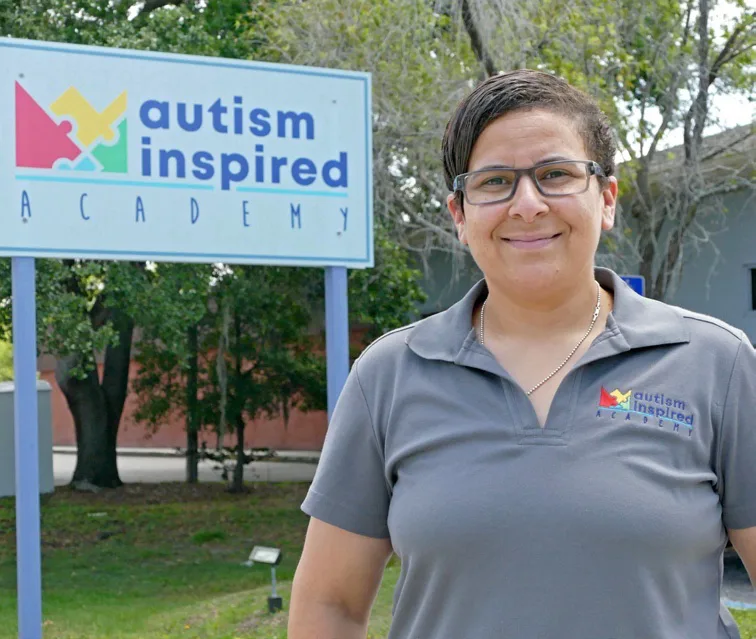
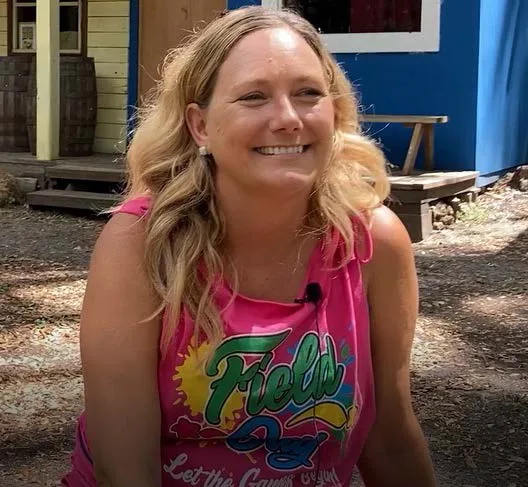
Tracy Kirby | Kirby Homeschool Co-op
Tracy Kirby didn’t set out to become an education entrepreneur. Pursuing learning options for her own children led to something bigger. Kirby left teaching in public school to homeschool her sons, who were struggling in middle school. That experience led her to create a learning pod for her daughter with special needs, which grew into a co-op. The Kirby Homeschool Co-op in rural Williston, Fla. now serves more than 40 students, most of them formerly in public schools. Several students, including Kirby’s daughter Kari, use education savings accounts. Expanding ESA eligibility, Kirby says, would spur more hybrid homeschools and other flexible options, and allow a more diverse array of families to access them.
Read more about the Kirby Homeschool Co-op here.
Kirby video here.
[spotlight-quote]“Teachers are naturally creative. And we like to jump out there and do things. And so, I would encourage other educators that there’s freedom outside of four walls. It’s unimaginable what happens when you take off the barriers, and you peel back those banana peels, and you’re free to be the teacher that God created you to be.”
– Tracy Kirby[/spotlight-quote]

